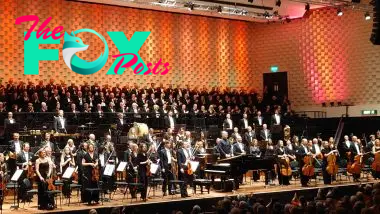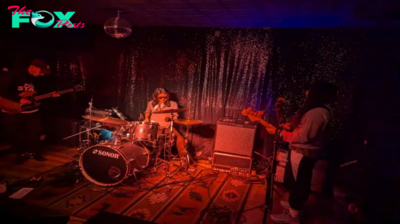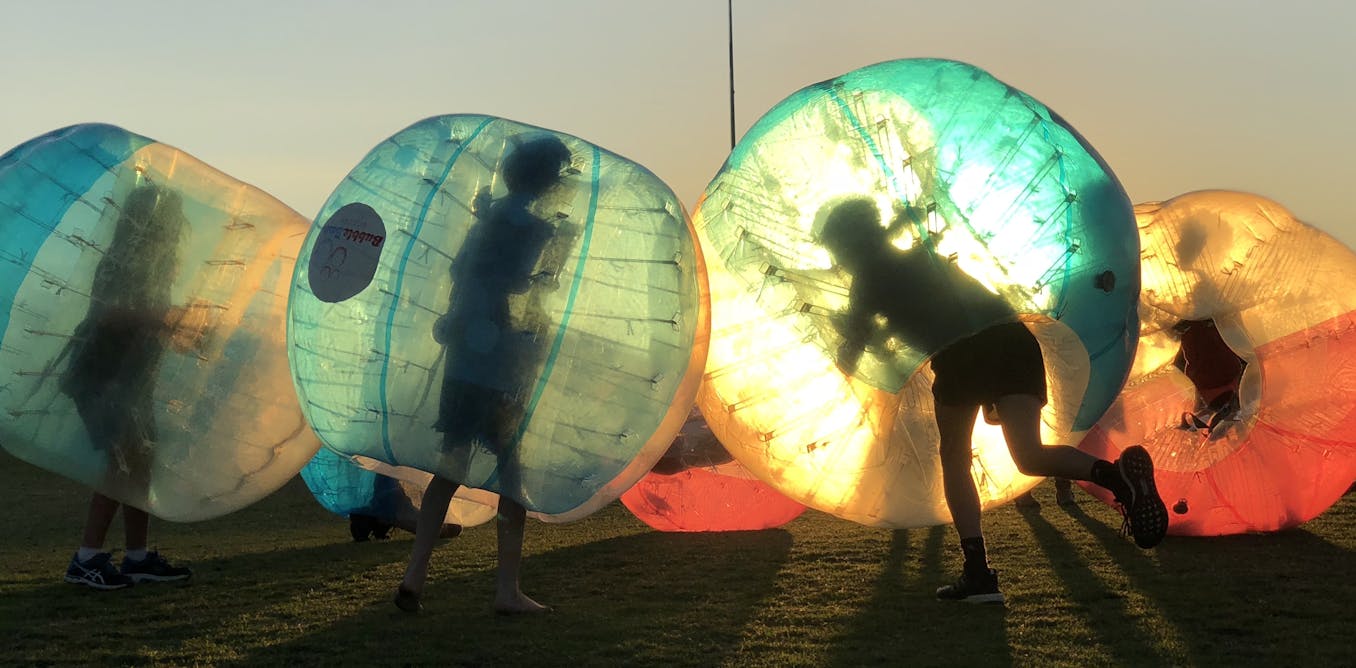Entertainment
Kirill Karabits and the Bournemouth Symphony Orchestra open our ears to Voices from the East – Seen and Heard Worldwide
 United Kingdom Tchaikovsky, Karabits, Kancheli, Balakirev: Alexander Malofeev (piano), Valeriy Sokolov (viola), Bournemouth Symphony Refrain, Bournemouth Symphony Orchestra / Kirill Karabits (conductor). Lighthouse, Poole, 1.5.2024. (CK)
United Kingdom Tchaikovsky, Karabits, Kancheli, Balakirev: Alexander Malofeev (piano), Valeriy Sokolov (viola), Bournemouth Symphony Refrain, Bournemouth Symphony Orchestra / Kirill Karabits (conductor). Lighthouse, Poole, 1.5.2024. (CK)

Tchaikovsky – Piano Concerto No.1
Ivan Karabits – Concerto for Orchestra No.3 ‘Lamentations’
Giya Kancheli – Styx
Mily Balakirev – Islamey
An excellent characteristic of Kirill Karabits’s lengthy tenure with the Bournemouth Symphony Orchestra (solely their founder Sir Dan Godfrey served longer) has been his Voices from the East undertaking: it’s mainly for this, and rightly, that he has been awarded an Honorary OBE. On the coronary heart of this demanding live performance have been two substantial works from Georgia and Ukraine, each totally new to me, and I count on to a lot of the viewers.
First, although, an explosive begin. Alexander Malofeev received the Worldwide Tchaikovsky ComPetitors for Younger Musicians when he was 13; on Wednesday, a blond, boyish veteran of twenty-two, he dispatched the Tchaikovsky First Piano Concerto as if it was the best factor on this planet, jousting with the orchestra on greater than equal phrases. The extraordinary opening instantly had us hooked: a fortissimo roar as 4 horns throw down the gauntlet, the piano taking it up with pounding chords which show to be the accompaniment of a world-bestriding tune within the orchestra. After which it vanishes, by no means to return. Malofeev appeared to have the suitable contact and tone for each temper: he was as spectacular within the lyrical interludes as in thunderous double octaves. The orchestra matched him, with good work within the Andante semplice from flute (Anna Pyne) and horn (Alex Willett). Dexterity, virtuosity, sensitivity – you title it: Malofeev had all of it.
On the grandstanding conclusion the corridor erupted: individuals received to their ft, cheering, stamping, some going to the entrance. For his encore, Malofeev reasonably anticlimactically morphed from a klaviertiger right into a Pet cat, giving us a dainty rendition of the Dance of the Sugar Plum Fairy. The viewers needed extra: he didn’t oblige, maybe sensing that if he weakened he may need been stored taking part in all night time.
The efficiency of the Concerto for Orchestra No.3 by Ivan Karabits, the conductor’s father, was fairly a distinct matter. Its subtitle, Lamentations, signifies its goal: to commemorate the tragic penalties of two man-made twentieth-century disasters – Stalin’s collectivization of Ukrainian farming, because of which seven million starved to dying, and the Chernobyl catastrophe in 1986. It’s a work of dignity, typically of spareness, of quiet devastation.
The work is in two actions. The opening Largo begins nearly eerily: a barely-audible tinkling, created by an instrument invented by Karabits together with his son’s assist: tiny bells woven into tresses of hair. A solo horn speaks into the near-silence, in tones of disappointment and with a way of a large, open panorama; the remainder of the brass add a wind-like susurration by blowing into their mouthpieces; a harp is heard, and eerie harmonics on a solo violin. All this appears to be an introduction to an anguished theme on violas, resulting in the involvement of the total orchestra. The motion’s percussion-driven outbursts are like cries of ache; that is music of tragic and heroic mood, and of protest too.
Strings are to the fore because the Allegro will get beneath means, and the music is once more tortured and angular: a bass tuba, bongos and different percussion intensify the temper. The sound winds down once more to the little bells: then, in a transfer which has nothing distractingly theatrical about it, the lights dim, and the conductor walks to the piano for a bleak coda. The sounds round him are like pinpoints within the darkness: the ghostly bells, the brass blowing into mouthpieces once more, a flute, a bassoon, a violin, a gong… With a low held word on decrease strings, the piece fades to black.
I discovered the efficiency terribly shifting; I’d have carried out so, I believe, even with out the up to date resonances of a struggling Ukraine, and a Ukrainian conductor. I sensed a particular heat within the viewers’s reception, and within the response of the orchestra too.
What to say, after that, about Giya Kancheli’s Styx? It’s a serious work, for solo viola (it was written for Yuri Bashmet), massive orchestra and refrain; its dimensions are much like these of Belshazzar’s Feast or Rachmaninov’s The Bells. Its music is highly effective, experimental, enigmatic: comparisons are unhelpful, however the nearest in my expertise can be Schnittke. I can’t hope to do it justice, aside from to say that it was magnificently carried out – not least by Valeriy Sokolov, whose solo viola was genuinely lyrical: he’s meant to be a pivotal Charon-figure, mediating between orchestra and refrain, the previous and the current, the residing and the lifeless, however in observe he generally appeared crushed between clashing choral and orchestral rocks. Caught between two nice forces shouldn’t be a snug place to be.
The textual content is as enigmatic because the music: however I used to be excited about Kancheli’s alternative of some traces from Time’s speech in Shakespeare’s The Winter’s Story. The speech takes a few minutes of clock time, however it bridges a niche of sixteen years within the play. In a few of Birtwistle’s music time is elastic, non-linear: we’re trapped contained in the music till the composer sees match to launch us. ‘Regular’ time doesn’t apply. Being ‘inside’ Styx felt like that: trapped in a timeless ritual.
In any case this, the orchestral model of Mily Balakirev’s Islamey appeared like a Beecham ‘Lollipop’; however it discovered the orchestra nonetheless in nice fettle. I left the live performance, as one ought to, having had my ears opened just a little wider, and searching ahead to Karabits and the BSO on the Royal Pageant Corridor in London on Sunday 19 Might, distilling their exploration of Voices from the East into concert events at 1pm, 4pm and seven.30pm.
Chris Kettle
-

 Entertainment10h ago
Entertainment10h agoHow to See Ava, Chiang Mai Night Safari’s Golden Tiger
-

 Entertainment11h ago
Entertainment11h agoDictionary.com Names ‘Demure’ as Its Word of the Year for 2024
-

 Entertainment12h ago
Entertainment12h agoAnna Delvey Reunites With Ezra Sosa and Flips Him Off Ahead of ‘Dancing With the Stars’ Finale Return
-

 Entertainment15h ago
Entertainment15h agoMethods to Recharge as an Actor
-

 Entertainment15h ago
Entertainment15h agoWeak Sign: October 4, 2024 Tubby’s
-

 Entertainment16h ago
Entertainment16h ago‘Gladiator II’ Ending Breakdown: Did Lucius Realise Maximus’ Dream of Rome?
-

 Entertainment21h ago
Entertainment21h agoGet to Know Bluesky, the New X Alternative with 18 Million Active Users
-

 Entertainment21h ago
Entertainment21h agoChuck Woolery, Smooth-Talking Host of Love Connection and Wheel of Fortune, Dies at 83


















